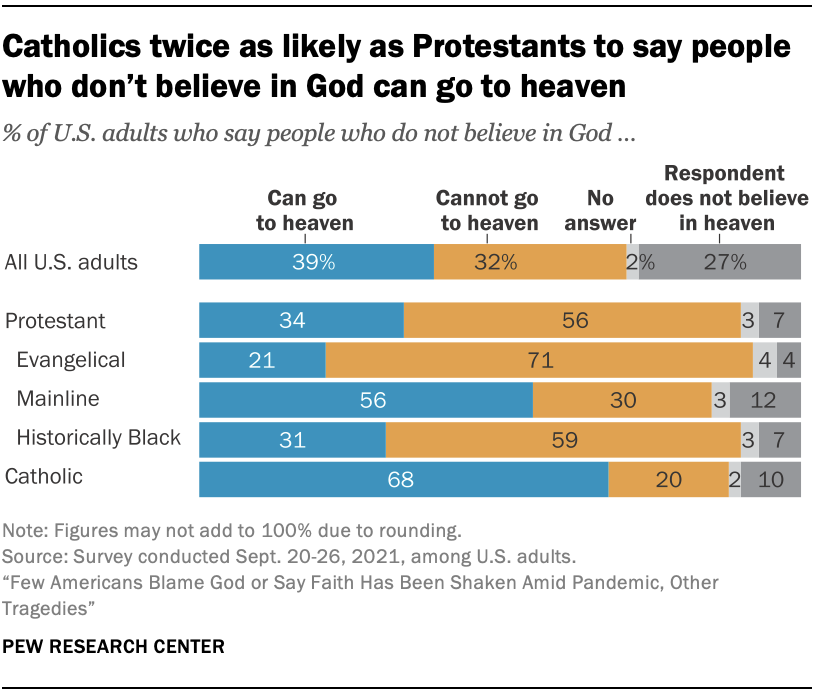The majority of Americans embrace the existence of heaven, but a plurality also believe those who reject God’s existence can somehow still get there, according to a new report from the Pew Research Center.
With religion statistics dramatically changing in recent years, this new analysis — which found 73% of Americans believe in heaven and 62% believe in hell — offers real-time insight into the hearts and minds of the U.S. population.
Interestingly, Pew said the figures are similar to the last time the organization asked these questions in 2017, showing not much of a decline in general perceptions of heaven and hell.
Among those who believe in heaven and hell, the general belief is that heaven is a place free from pain and trouble.
“The vast majority of those who believe in heaven — which is most U.S. adults — say they believe heaven is ‘definitely’ or ‘probably’ a place where people are free from suffering, are reunited with loved ones who died previously, can meet God, and have perfectly healthy bodies,” the Pew report reads.
Meanwhile, nearly one-in-five Americans (17%) don’t believe in the afterlife at all.

But what do people believe about how one gets to heaven?
On the whole, 39% of Americans believe someone who doesn’t believe in God can go to heaven, with just 32% saying such a person “cannot go to heaven.”
Evangelicals are the most likely Christian cohort to believe a person must believe in God to make it to heaven, with 71% embracing this ideal; just 21% of evangelicals say a person who doesn’t believe in the Lord can reach heaven.
Alternatively, Catholics are the most likely Christian cohort to believe a person who does not believe in God can go to heaven, with nearly seven-in-10 embracing this notion. Just 20% of Catholics believe a person who rejects God “cannot go to heaven.”
As Faithwire previously reported, the Pew report also explores the problem of pain, finding most Americans don’t blame God for the world’s woes. The majority of U.S. adults (68%) say “everything in life happens for a reason.”
As for other suffering metrics, 61% see such pains as existing to “provide an opportunity for people to come out stronger,” and the majority of people (71%) credit suffering as being “mostly the consequence of people’s own actions” or “mostly a result of the way society is structured” (69%).
***As the number of voices facing big-tech censorship continues to grow, please sign up for Faithwire’s daily newsletter and download the CBN News app, developed by our parent company, to stay up-to-date with the latest news from a distinctly Christian perspective.***



